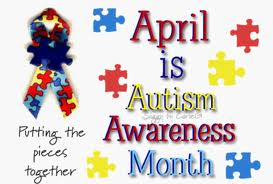1. Don’t let your child have more than 30 minutes of TV or computer time a day
My kids probably get 30 minutes of screen time just before they leave for school in the mornings. Contrary to what we keep hearing, their brains are not turning to mush and they don’t live in a catatonic zombie-like state. They are bright and energetic, there is nothing wrong with their motor skills or my neurotypical child’s social skills, and the games that my autism boy plays have a noticeable positive impact on his speech.
2. Don’t feed your kids processed food
Whoever made this rule probably didn’t have picky eaters. Like most parents, I try to feed my kids a healthy balanced diet that includes fruits, vegetables and all of the right nutrients. Some of the food they eat regularly is processed, and I am unapologetic. If I were to eliminate all processed foods, my younger son would start to look like a starving refugee. The kids will grow out of the processed food and into “real” food – I am already seeing this with my older son, who used to eat nothing but grilled cheese sandwiches with processed cheese.
3. Don’t ever yell at your kids
According to The Experts, yelling at your kids is ineffective and psychologically harmful. Apparently, talking to them softly will cause them to stop what they are doing and listen to you. That has got to be the biggest joke of the century. There are times when yelling is the only effective way of getting them to stop whatever chaos they’re causing. Do I constantly yell at them all day, every day? No, and if I did I would deserve a slap upside the head. But the occasional bout of yelling in frustration is not leading my kids to a lifetime of therapy. They know I love them, because I tell them all the time.
4. Don’t expose your kids to germs
I’m not stupid about germs. I’m not going to dump my kids into the middle of a crowd of tuberculosis patients. I make them wash their hands before meals and after using the washroom. They are expected to maintain acceptable standards of hygiene. But I believe that there is such a thing as too much cleanliness. If my kids touch an unsterilized surface like the handle of a shopping cart, I’m not going to go to war using a bottle of hand sanitizer. I don’t keep them away from places “just in case” someone has a cold. They are strong, healthy kids who rarely get sick.
5. Sit down at the table and have your dinner as a family
I’ve read the statistics: families that eat dinner together at a dining room table are less dysfunctional and more connected. The first problem with that is that we don’t actually have a dining room table. The second problem is that getting the autism boy to sit down for an entire meal is a bit of a challenge. Even in restaurants, he has to get up and wander around from time to time. Our family is admittedly a little bit dysfunctional (show me a family that isn’t), but we are highly connected with one another.
6. Send your kids to bed at the same time every night, even on weekends
I have nights when I’m absolutely exhausted, and I have other nights when I’m too wired up to even think of sleep. My kids are the same. They don’t get tired at the same time every night, so they don’t go to bed at the same time every night. Generally, I try to make sure they’re in bed by 8:30 during the week, but if it turns out to be 9:00 from time to time, it’s not end of the world. Not only that – they are allowed to stay up later on weekends.
7. Treat both of your children equally
I have one son, aged 10, who has autism. He doesn’t talk much and he struggles with social interactions. I have another son, aged 8, who is neurotypical. He is outgoing and talkative. The boys are very, very different from one another. They have different capabilities, different levels of cognitive functioning, and different needs. I love them both with all of my heart, but they have to be treated differently, because they are different people.
8. Always put your kids’ needs ahead of your own
If one of my kids is cold, I will give him my jacket. I make sure my boys are fed before I eat anything myself. If they are sick or scared in the middle of the night, I gladly sacrifice my own sleep so I can comfort them. My heart bursts with love for them, and I live to make them happy and take care of them. Sometimes, though, I have to think of myself first. I have to tune them out to do my own thing, or I have to go for a run before I take them to a park. Because sometimes, if I don’t take care of myself, I am too burned out to take care of anyone else.
9. Don’t let your kids do dangerous things
Look, I’m not going to buy my 8-year-old a Harley Davidson or encourage him to go bungee jumping. But if he’s doing something daring on the playground or riding his bike too fast around our cul-de-sac, I’m not going to stop him. If he falls, he falls. He might get a grazed knee or a bump on the head. If that happens, he’ll get First Aid and the appropriate amount of sympathy, and he will have learned something about what he is physically able to do. I’d rather let my boys test their limits while I’m around to watch, instead of restricting them and forcing them to experiment without proper supervision.
This is an original post by Kirsten Doyle. Photo credit to the author.











